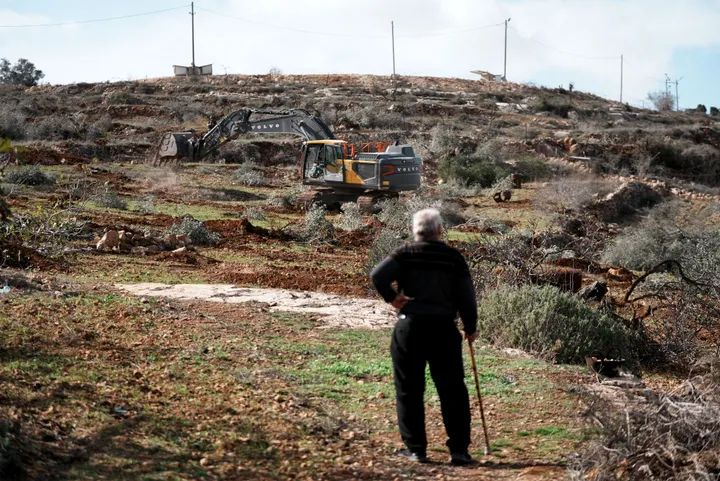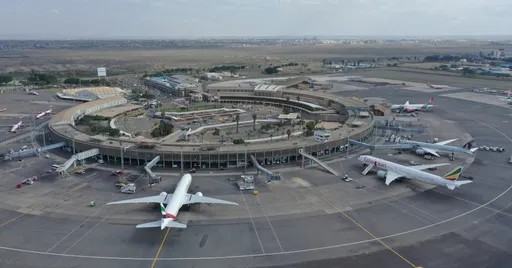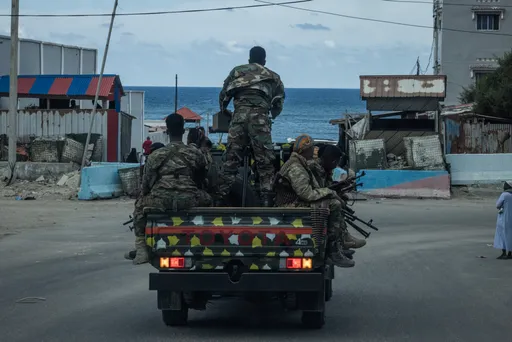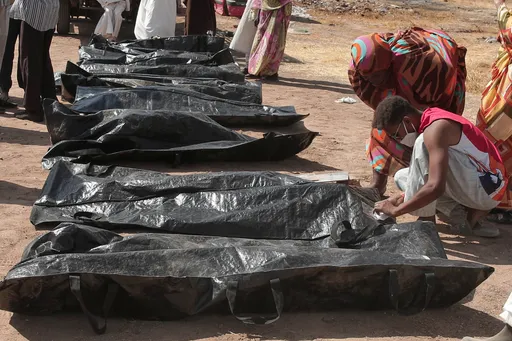By Yousra Samir Imran
Leeds - On my daily walk with my toddler, there is an invisible line that marks the point at which I must turn around and walk back the way I came. Beyond this point is a council estate inhabited by a largely white English community that is famous for not being nice to Muslims.
Some people in the United Kingdom talk about "no go zones," areas where they (absurdly) believe Muslim majorities rule the streets with Sharia law. But no one talks about the very real no-go zones for visibly Muslim women in Britain, like myself.
Since last week's horrific mass stabbing of young children in Southport and the far-right violence that ensued as a result of disinformation about the background of the accused, 17-year-old Axel Rudakabana, no-go zones have spread across most of Yorkshire, the county I live in.
Over the weekend, a Muslim woman in Middlesbrough, North Yorkshire, was the victim of an acid attack by far-right rioters. Since then, I have been asked by my parents and my husband not to use public transport and not to go to Leeds or Wakefield, the two nearest cities to me. I am effectively a prisoner in my own home until the riots hopefully come to an end.
Lockdown
It is currently school summer holidays in Britain, and while I am privileged to live in a house and able to go into my garden if I need some fresh air or somewhere for my son to play, not all Muslim, Black, Asian and ethnic minority mothers can do the same.
Those who live in flats with multiple children rely on local playgrounds or allow their children to play outside in the street. They also depend on summer activity schemes run by local libraries or mosques.
Turning to these venues for recreation is now not possible, as the streets have become the sites of violent assaults, theft and arson, with mosques being prime targets and even libraries being set on fire and destroyed. Put simply, right now, British Muslim mothers like me are scared for ours and our children's lives.
The riots initially started in Merseyside in North West England before spreading to other towns and cities in North East England, Yorkshire and the Midlands, such as Manchester, Hartlepool, Liverpool, Leeds, Rotherham, Tamowrth and Nottingham.
These are areas with large multi-ethnic and refugee communities. As of today, the violence has spread as far as Belfast in Northern Ireland.
Over the weekend, my Muslim, Black, Asian and ethnic minority friends and I sent each other messages of love and solidarity, urging each other to stay safe and take care when going out.
WhatsApp messages are circulating on groups advising when and where the next riots are due to take place and advising Muslim sisters to stay at home. Some British Muslims are saying that this is exactly what the far-right rioters want – for us to be afraid and stay at home.
However, as a mother, it is not just my safety I need to consider. I need to think about the possibility of my two-year-old Asian-Arab son being a target.
Denial and gaslighting
Earlier on Monday, Prime Minister Keir Starmer said, "Whatever the apparent motivation, this is not a protest. It is pure violence, and we will not tolerate attacks on mosques or on our Muslim communities."
But many people here won't even acknowledge what is truly happening. These are undoubtedly some of the darkest days I have lived through in Britain.
Only a few weeks ago, I wrote an article about my personal experiences of increased racism and Islamophobia on public transport since the war on Gaza began in October 2023. I was met with gaslighting from white English keyboard warriors who said I was a "snowflake" and that there is no such thing as Islamophobia.
Now we are witnessing a nation-wide pogrom on hotels housing mainly Muslim asylum seekers, mosques and hijab-wearing women. Meanwhile politicians and mainstream media are using terms such as "unrest," "disorder" and "anti-immigration protests," instead of calling it what it is – anti-Muslim riots and domestic terrorism. This makes me feel like I am being gaslit on a macro level.
The current far-right and anti-Muslim riots are reminiscent of everything my parents and in-laws witnessed and experienced before me while living in the UK decades ago.
My parents' daily public lives were marred by aggressive and explicit racism and Islamophobia throughout the '80s and '90s in London, which only ramped up post-9/11. My in-laws lived through several race riots, including the Leeds and Bradford riots in the 1980s, the 1989 Dewsbury riots and the Bradford riots in 2001. I can't imagine how re-traumatising and triggering this must be for them.
Worried about the future
I used to hold so much hope for the future of my young son, that he would grow up in a multi-cultural and diverse Britain that would finally do away with racism once and for all. Now I question my government’s capability to quash the ever-growing threat of far-right fascism and wonder whether Britain will eventually join the ranks of other European countries that have fallen under the grip of neo-fascist far-right political parties.
With teenagers as young as 14 years old taking part in the mobs, I am not holding out hope for the next generation of English people to be anti-racist.
This past week should be a watershed moment for everyone in Britain. For decades, Muslims have been scapegoated for all ills of British society. For years, British Muslims have argued that racism and Islamophobia are on the rise exponentially, but we have been gaslit or ignored.
The past eight days of targeted anti-Muslim violence is a physical indicator of the height and breadth of anti-Muslim sentiment across Britian. I want my white friends and peers who are commenting that they could never imagine seeing such a thing in their country to wake up from the dream they have been living in and to show allyship to their Muslim, Black, Asian and ethnic minority friends, peers and neighbours.
As I currently experience some of Britain's worst days of Islamophobia, I wonder if my son will be part of yet another generation of brown, Muslim Asians who will be made to feel unsafe and unwelcome in the country he was born in.
The author, Yousra Samir Imran is a British Egyptian writer and author who is based Yorkshire. She is the author of Hijab and Red Lipstick, being published by Hashtag Press in the UK in October 2020.
Disclaimer: The views expressed by the author do not necessarily reflect the opinions, viewpoints and editorial policies of TRT Afrika.
➤ Click here to follow our WhatsApp channel for more stories.
















.JPG?width=512&format=webp&quality=80)






